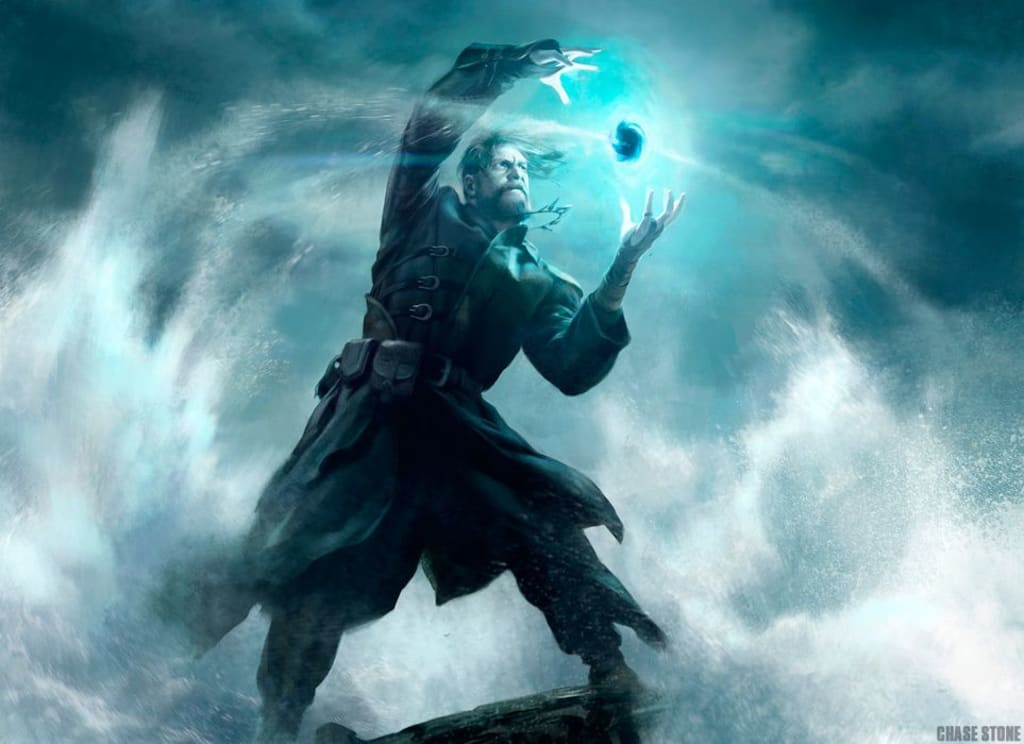The Importance of Character
In a Role-Playing Game

It's not hard to get caught up in the mechanics of a game—especially a tabletop. If you're overly concerned with numbers then you might wish you had picked a certain class or race or school of magic. But whether you're an elf or a human isn't going to stop probability in its tracks. Whatever the numbers, you're likely to fail, or succeed in equal measure. It's mathematics.
Honestly, I see a lot of players, even myself, get more than a little bit frustrated when you have a bad session and more than a few poor dice rolls. But if you're not invested in your character, that failure can be felt more deeply, and success probably won't matter as much. Yes, when you're character building for the first time, you want to play to your strengths, or what your strengths should be; but it is when you take the time to actually give your character "character," then that is when you bring the role-play to life. Your character becomes more than a Barbarian with low dexterity who can't dodge a spear; he becomes clumsy and graceless. He might be prone to dropping things or tripping over a carpet.
In a sense you could use your stats to form the base of a personality, especially if you decided that your Barbarian, whom, I suppose we shall dub Rolfe, has a fascination with archaeology. You might decide to sacrifice the benefits of optimising Rolfe's class, and instead choose to build Rolfe in a way that is more suited to her personality rather than his class.
This is by no means a poor decision, but it does mean you will likely have to compensate somewhere else. But again, mechanics aside, Rolfe still might trip over things regardless of whether or not he is light-footed. It's all in the dice. What isn't in the dice is within you and your character. In a large open-world setting like Dungeons & Dragons or Monsterhearts, you get the most out of the game by letting go of your inhibitions and your shyness and embrace your character. Did you have a backstory? Build one. Is it tragic? Act like it. Who do you have an vendetta against, if anyone? All of these are valuable and valid questions, and not only help you, but your guide; your Game Master. Give them something to play off. There is nothing wrong with a bit of escapism, and if it advances your plot or your character development, then it stands to reason you become invested in the life of your creation. If your character's life is shrouded in mystery, don't forget—your Game Master is there to help you get the most out of your storyline. I for one, have made more of a mess of things within a love-triangle than I would care to admit because my upright and proper Paladin said the wrong thing to the right person.
That is another thing. Becoming invested in your own character builds bridges between your character and the non-player characters that you and Rolfe interact with every session. Even if your session turns out to be more of a dungeon crawl than anything else, there are still opportunities to take advantages of during any downtime you may have. Downtime being any time spent away from the plot-line or between battles, if there are any. The smallest interaction can mean the difference between Rolfe finding out he is really a prince, or that revelation never coming to light at all.
Remember, there may be an overarching plot, but that does not at all mean that you and your character have to put your lives on hold to stop an evil wizard from raising townsfolk from the dead. You can do that AND Rolfe can discover that his friend Malachi really hates rats, or has intimacy issues, or a son he hasn't told anyone about. Sub-plots are just as important as the main storyline. They tie the whole story together and you to the world, and even more so, they stop the story from going stale. Absolutely never forget that your story is just as relevant as anything else that might come up. Heck, if you talk to your Game Master about your character, they may even create a sub-plot for you.
Consider your backstory, any ideas you may have, and if you like them, take them to your Game Master. Communication is key in getting the most out of a game. Find a reason to become invested in the main storyline and your own sub-plot. There is nothing worse than taking a back seat in a game that is, ultimately, all about you. Never forget that even your failures can be used to make your in-game experience more meaningful, more dramatic. That vase Rolfe dropped? It shattered, and now any chance of a stealthy approach to whatever mission Rolfe was on is out the window. Time to fight your way out... or maybe you would prefer not to, since Rolfe's knowledge of archaeology means he's more suited to carrying books than an axe.
Good luck with that.






Comments
There are no comments for this story
Be the first to respond and start the conversation.